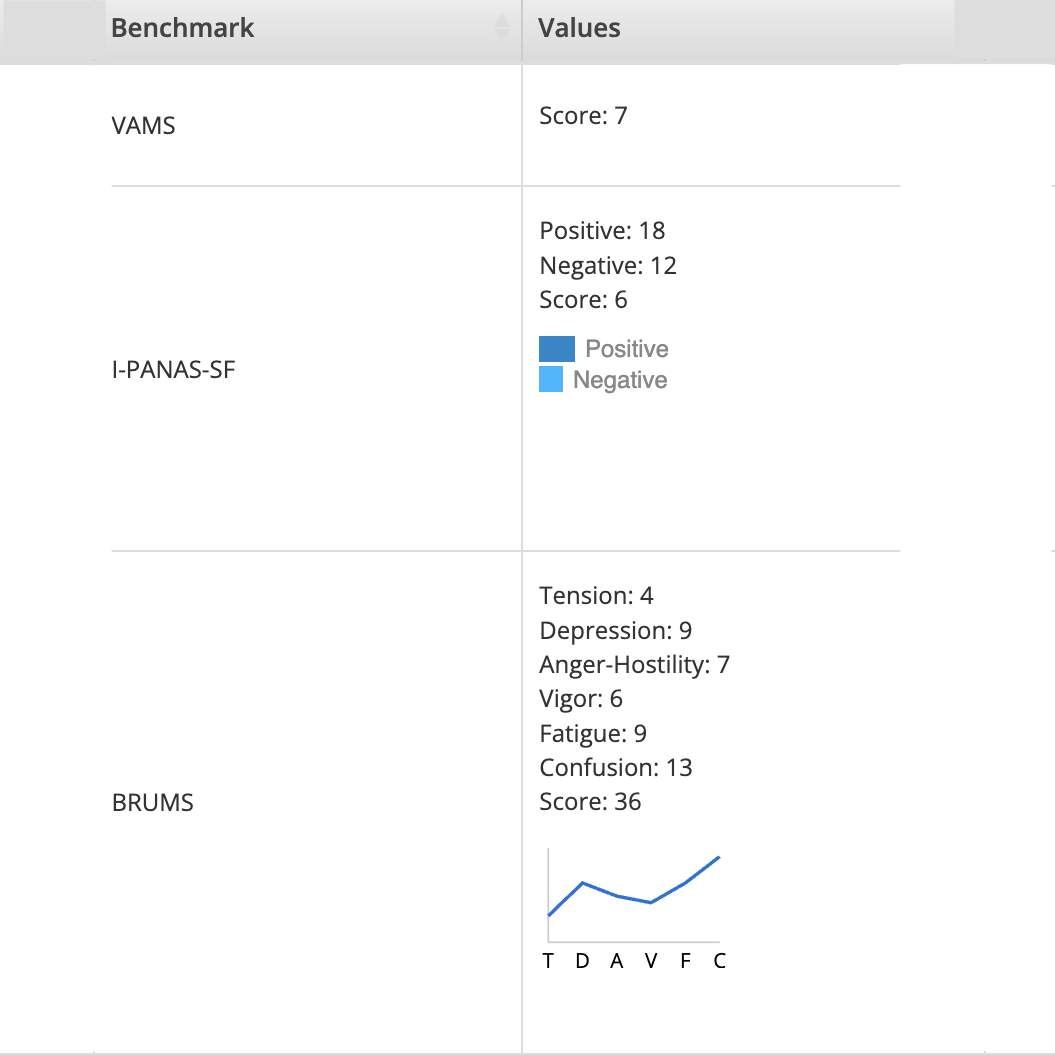In the competitive realm of sports, coaches and athletes are constantly exploring innovative methods to improve performance. While physical training and sports performance analysis are fundamental, there’s an emerging recognition of the significance of psychological factors. This blog post delves into the integration of psychometric tests, such as the BRUMS, PANAS, I-PANAS-SF, VAMS scale, and the Feeling Scale, into the Selfloops platform. We’ll explore how these tools offer a comprehensive view of an athlete’s well-being and performance, heralding a new era in sports management.
Understanding Psychometric Tests in Sports
Psychometric tests are tools designed to measure psychological characteristics such as mood, emotions, and attitudes. These aspects play a crucial role in an athlete’s performance. Let’s look at some key tests:
- BRUMS (Brunel Mood Scale): Assesses mood states like tension, depression, anger, vigor, fatigue, and confusion, providing insights into an athlete’s mental readiness.
- PANAS (Positive and Negative Affect Schedule) & I-PANAS-SF (International Positive and Negative Affect Schedule Short Form): These tools evaluate positive and negative affect, offering a glimpse into an athlete’s emotional well-being.
- VAMS (Visual Analog Mood Scales): This scale uses visual cues to assess mood, beneficial for those who prefer non-verbal expression.
- Feeling Scale: A simple tool to gauge an athlete’s momentary levels of pleasure or displeasure, especially useful during training or competition.
Integration with SELFLOOPS: A Game-Changer
SELFLOOPS has integrated these psychometric tools into its offerings. This integration provides several advantages:
- Holistic Analysis: By combining physiological data with psychometric test results, coaches gain a 360-degree view of an athlete’s condition.
- Personalized Training: Understanding psychological states helps in tailoring training programs to suit an athlete’s mental and physical needs.
- Performance Prediction: Mood and emotions can predict performance levels. Coaches can make strategic decisions based on these insights.
- Well-being Focus: These tools emphasize the importance of mental health, crucial for long-term athlete development.
The psychometric tests are private to the user by default. The SELFLOOPS Spark smartphone app is used to submit the questionnaires, the analysis is available on the website.

Benefits for Coaches and Athletes
- Enhanced Communication: Insights from these tests improve the communication between coaches and athletes, fostering a better understanding of needs and concerns.
- Injury Prevention: By monitoring mental states, coaches can identify signs of overtraining or stress, potentially preventing injuries.
- Peak Performance: Understanding emotional states helps in optimizing training to achieve peak performance during important events.
- Career Longevity: Addressing psychological factors contributes to an athlete’s overall well-being, potentially extending their career.
Conclusion: A New Era in Sports Performance Management
The integration of psychometric tests in sports, especially through innovative platforms like SELFLOOPS, marks a new era in sports performance management. This holistic and comprehensive approach ensures that athletes are not only physically prepared but also mentally equipped to face the challenges of competitive sports. For coaches, these tools offer invaluable insights, enabling them to develop more effective and empathetic training strategies. Ultimately, embracing this multifaceted approach to sports performance can lead to enhanced results, healthier athletes, and a more enlightened approach to athletic training and development.
Remember, in the world of sports, success is not just about how hard you train your body, but also about understanding and nurturing the mind.